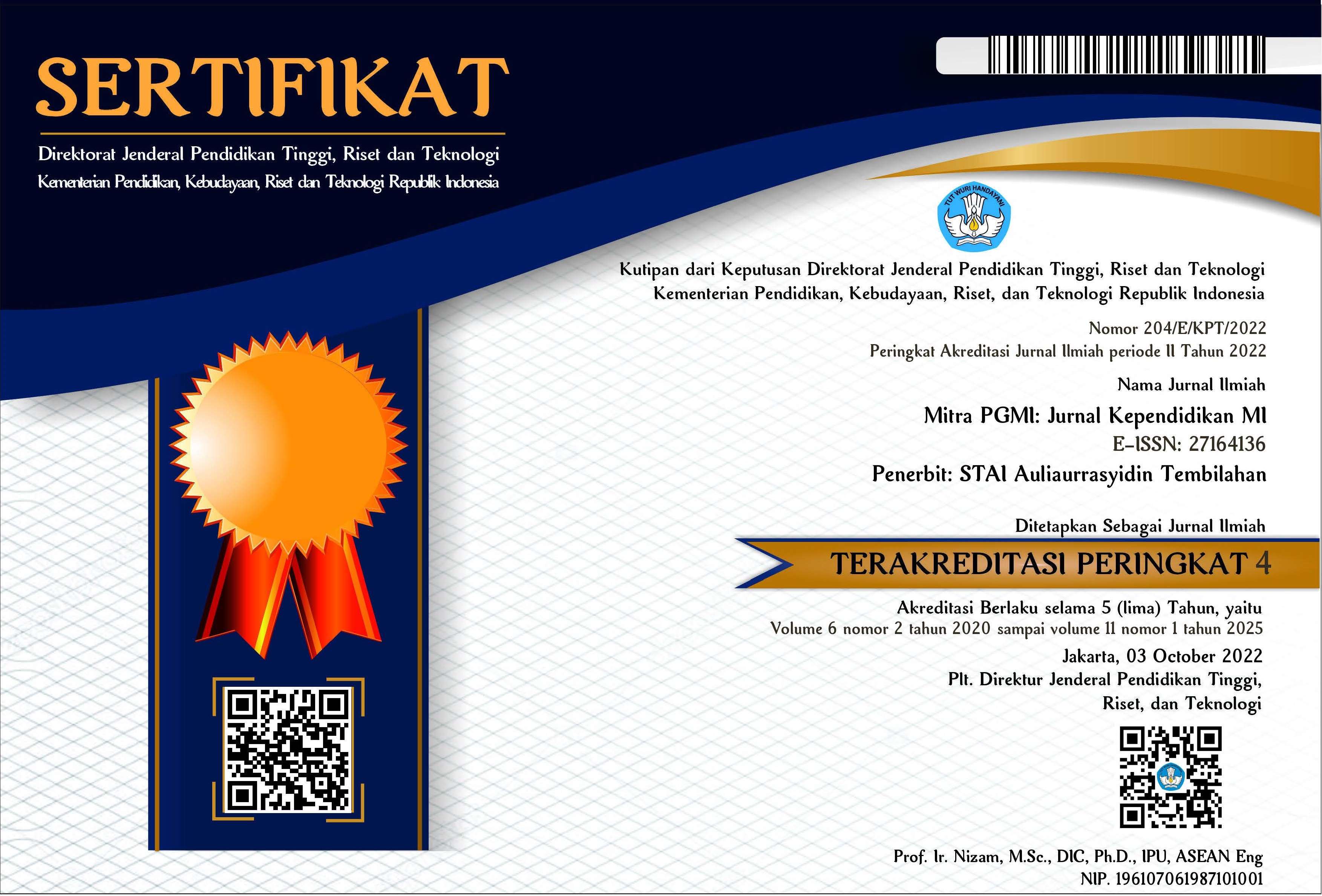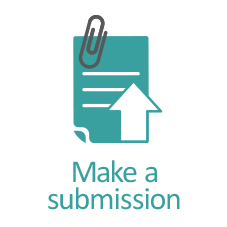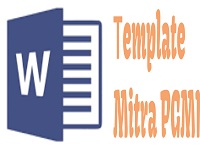Pelaksanaan Manajemen Pendidikan Inklusif di SDN 002 Pulau Palas Kecamatan Tembilahan Hulu Kabupaten Indragiri Hilir
DOI:
https://doi.org/10.46963/mpgmi.v9i1.773Keywords:
Implementation, Management, InclusiveAbstract
The purpose of this study was to find out how the implementation of inclusive education management at SDN 002 Pulau Palas, Tembilahan Hulu District, Indragiri Hilir Regency and to find out what are the obstacles and supports in implementing inclusive education management at SDN 002 Pulau Palas, Tembilahan Hulu District, Indragiri Hilir Regency. Based on the results of the analysis of research data, the following conclusions are obtained: First: Implementation of Inclusive Education Management at SDN 002 Pulau Palas, Tembilahan Hulu District, Indragiri Hilir Regency has done quite well what the school principal has done because there are some of the results of observations and interviews that are in accordance with the results which are expected. In this case the school principal carries out several processes of implementing inclusive education in elementary schools, it is necessary to have an individual learning program. The program is useful for giving direction to learning by knowing the strengths, weaknesses, and interests of students, so an individualized program is directed at goals on the basis of needs and in accordance with the current level of ability. In addition, this program is also a vehicle for increasing business to provide more effective educational services. There are also learning programs using media so that students understand more. Second, the supporting factors in the Implementation of Inclusive Education Management at SDN 002 Pulau Palas, Tembilahan Hulu District, Indragiri Hilir Regency, namely that the school has a special accompanying teacher, each child has one special accompanying teacher. So this special accompanying teacher makes individual learning programs based on the results of the assessment. There is support from the local community, there are adequate facilities that support learning. Then the obstacle factor is not having professional staff such as doctors and psychologists.
Downloads
References
Herawati, Nenden Incu. 2018. Pendidikan Inklusif. Jurnal Pendidikan Dasar EduHumanioria. Vol. 2 No. 1 Kampus Upi Di Cibiru. 2018
Latif, A. (2014). Pendidikan Berbasis Nilai Kemasyarakatan . Bandung: Refika Aditama.
Musoliyah, Astri. 2019. Pemenuhan Hak-hak Anak Berkebutuhan Khusus dalam Perspektif Undang-Undang Nomor 8 Tahun 2016 tentang Penyandang Disabilitas: Studi Kasus Di Desa Sonoageng Kecamatan Prambon Kabupaten Nganjuk. Jurnal Sakna Journal Of Family Studies, Universitas Islam Negeri Maulana Malik IbrahimVol. 3. Issue. 2. 2019.
Nata, A. (2015). Persepektif Islam Tentang Strategi Pembelajaran. Jakarta: Kencana.
Nugriho, R. (2014). Pendidikan Indonesia: Harapan, Visi dan Strategi. Yogyakarta: Pustaka Pelajar.
Sudjana, N. (2012). Dasar-dasar Proses Belajar Mengajar. Bandung: PT Sinar Baru Algensindo.
Suryosubroto. (2014). Proses Belajar Mengajar di Madrasah . Jakarta: RIneka Cipta.
Triwiyanto, T. (2015). Manajemen Kurikulum dan Pembelajaran. Jakarta: Bumi Aksara.
Uno, H. B. (2012). Profesi Kependidikan. Jakarta: Bumi Aksara.
Downloads
Published
Issue
Section
License
Copyright (c) 2023 Ahmad Ahmad, Edi Susrianto, Nur Baidi, Khairuddin Khairuddin, A. Muthalib

This work is licensed under a Creative Commons Attribution-ShareAlike 4.0 International License.
Authors who publish with this journal agree to the following terms:
1. Copyright on any article is retained by the author(s).
2. The author grants the journal, right of first publication with the work simultaneously licensed under a Creative Commons Attribution shareAlike 4.0 International License that allows others to share the work with an acknowledgment of the work’s authorship and initial publication in this journal.
3. Authors are able to enter into separate, additional contractual arrangements for the non-exclusive distribution of the journal’s published version of the work (e.g., post it to an institutional repository or publish it in a book), with an acknowledgment of its initial publication in this journal.
4. Authors are permitted and encouraged to post their work online (e.g., in institutional repositories or on their website) prior to and during the submission process, as it can lead to productive exchanges, as well as earlier and greater citation of published work.
5. The article and any associated published material is distributed under the Creative Commons Attribution-ShareAlike 4.0 International License








2.png)


